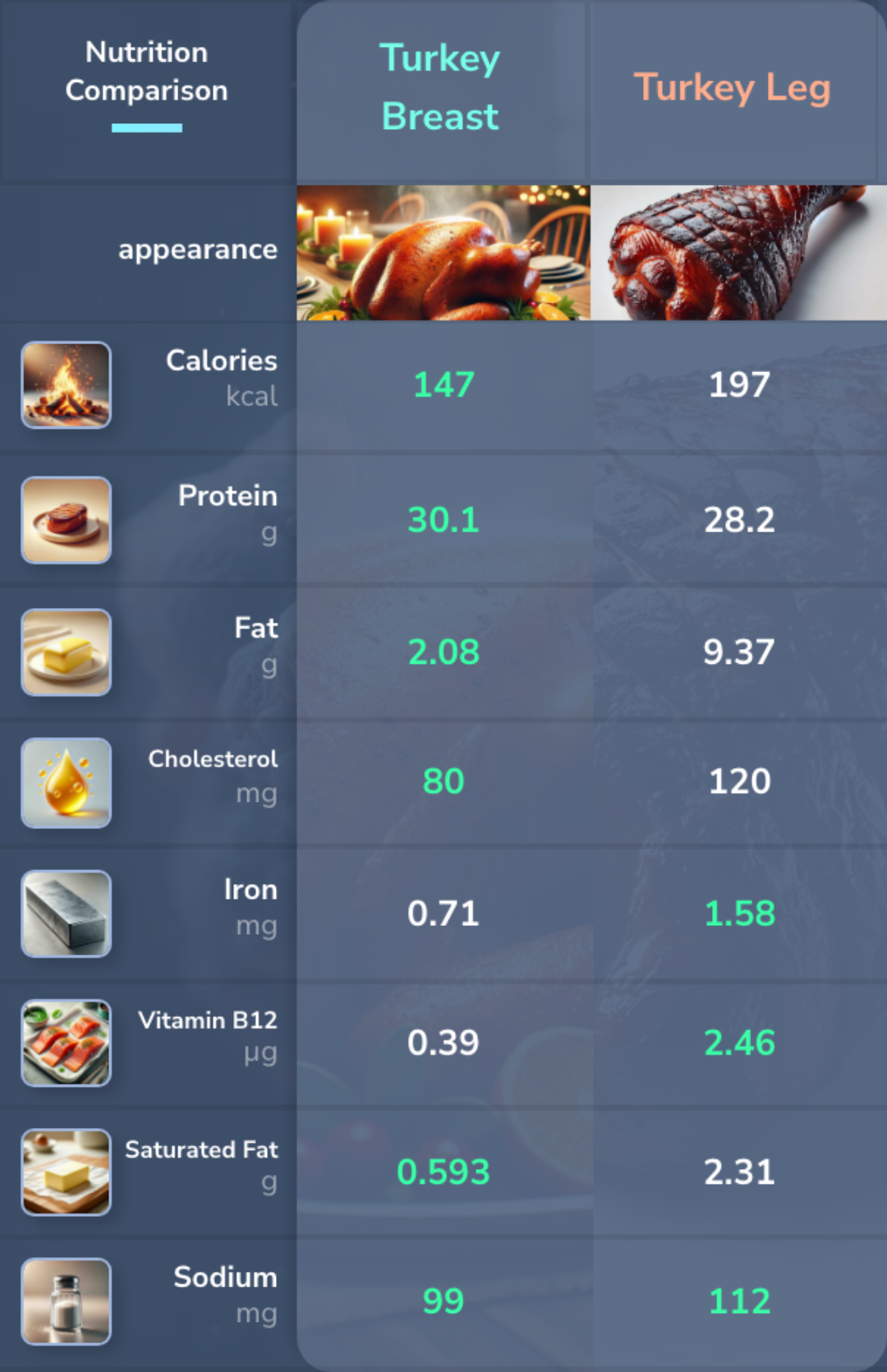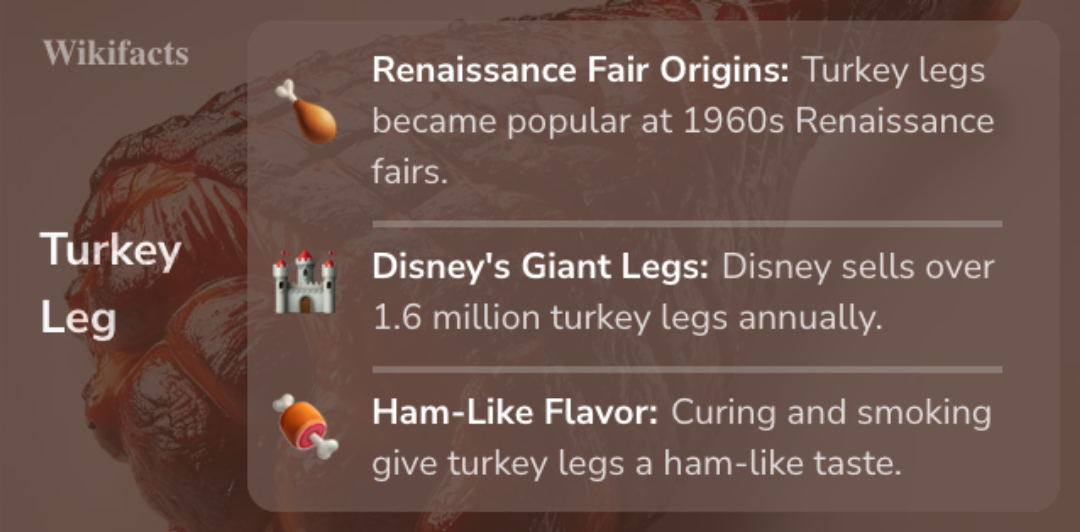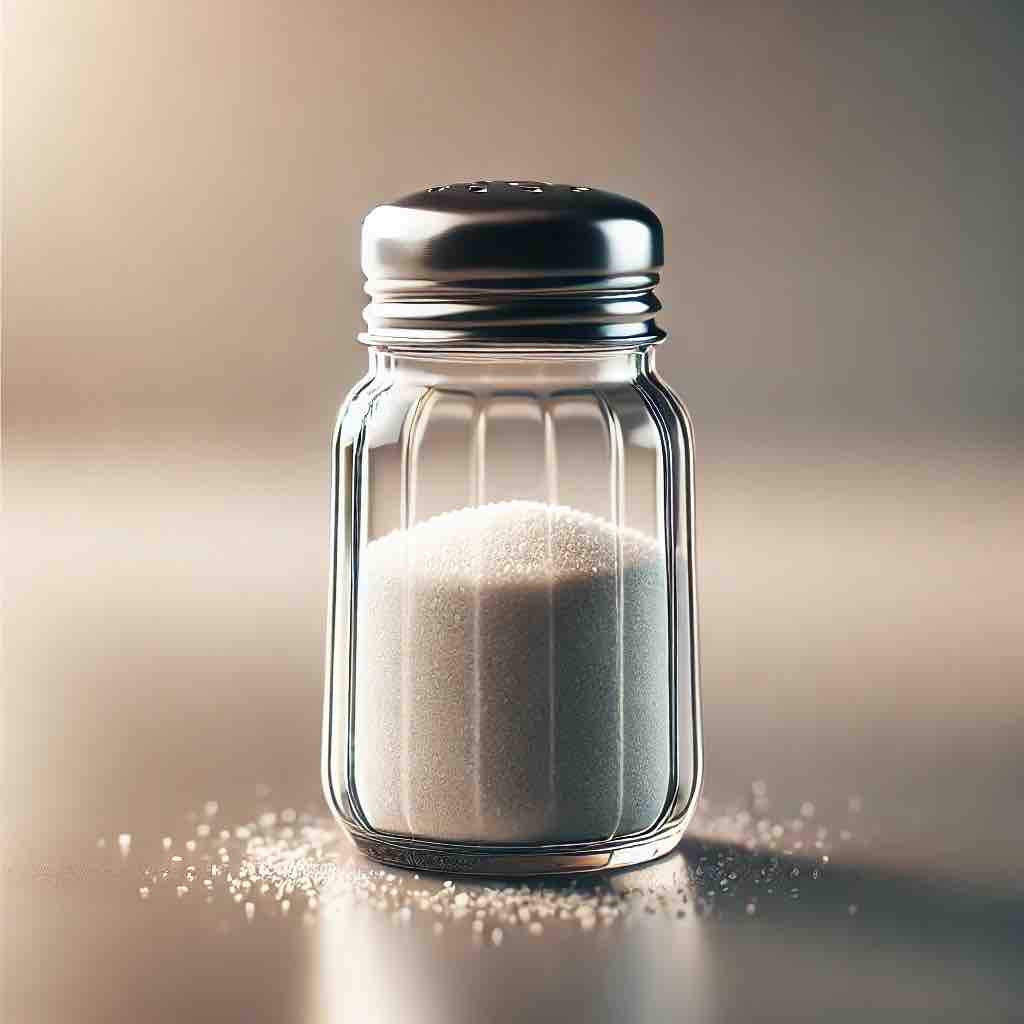Holiday Nutrition
Nutrition Comparisons
Turkey Breast vs. Turkey Leg
Turkey breast is leaner with fewer calories, more protein, and less fat and cholesterol, while turkey leg is richer in iron and vitamin B12. Both have low sodium, but turkey breast stands out for low-fat diets, whereas turkey leg offers higher micronutrient content for iron and B12.

Background:Turkey Breast

top benefits 👍
💪
High Protein Content:Turkey breast is rich in protein, aiding muscle growth.
🧠
B Vitamin Boost:Contains B vitamins supporting energy and brain function.
🦴
Mineral-Rich Meat:Provides essential minerals like selenium and phosphorus.
drawbacks 👎
⚠️
Potential Sodium Content:Processed turkey products can be high in sodium.
Background:Turkey Leg

top benefits 👍
💪
High Protein Content:Turkey legs offer about 28 grams of protein per serving.
🩸
Rich in Iron:Dark meat in turkey legs is high in iron.
🧠
B Vitamins Boost:Provides B6 and B12, supporting brain function.
drawbacks 👎
🧂
High Sodium Levels:Processed turkey legs can be high in sodium.

Calories
Turkey breast has 147 kcal per serving compared to 197 kcal in turkey leg, making it a leaner option for calorie-conscious diets.

Protein
Turkey breast provides slightly more protein (30.1 g) than turkey leg (28.2 g), making it a better source for protein intake.

Total Fat
Turkey breast contains significantly less fat (2.08 g) than turkey leg (9.37 g), which is beneficial for low-fat dietary preferences.

Cholesterol
Turkey breast has a lower cholesterol content (80 mg) compared to turkey leg (120 mg), which may be better for heart health.

Iron
Turkey leg contains more iron (1.58 mg) than turkey breast (0.71 mg), which supports oxygen transport and energy production.

Vitamin B12
Turkey leg offers significantly more vitamin B12 (2.46 µg) than turkey breast (0.39 µg), important for nerve function and red blood cell production.

Saturated Fat
Turkey breast has less saturated fat (0.593 g) than turkey leg (2.31 g), which can support heart health.

Sodium
Both turkey breast (99 mg) and turkey leg (112 mg) have relatively low sodium content, making them suitable for low-sodium diets.